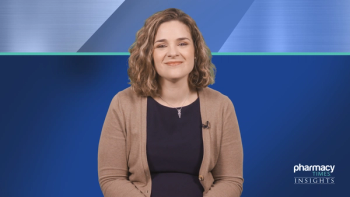Carmen Janes, PharmD, BCOP
Articles by Carmen Janes, PharmD, BCOP

An expert discusses how pharmacists can expand their role in chronic myeloid leukemia (CML) care through remote medication therapy management, adherence support, and helping patients navigate insurance barriers and medication access challenges to ensure successful long-term treatment outcomes.

An expert discusses how pharmacists play a crucial role in managing tyrosine kinase inhibitor toxicities through proactive monitoring strategies, patient education about adverse effects such as myelosuppression and fluid retention, and early intervention protocols to maintain treatment adherence and quality of life.

An expert discusses how traditionally later-line therapies such as ponatinib and asciminib are now being reconsidered for earlier use, with asciminib approved for frontline treatment and ponatinib potentially used as second-line therapy for patients with specific mutations or comorbidities.

An expert discusses how achieving molecular and clinical milestones early in chronic myeloid leukemia (CML) treatment reduces transformation risk, enables potential treatment discontinuation after specific criteria are met, and helps identify treatment resistance requiring mutational analysis or adherence assessment.

An expert discusses how landmark trials such as ASC4FIRST, ENESTnd, and BFORE provide evidence for frontline tyrosine kinase inhibitor (TKI) selection, with asciminib showing superior tolerability and lower discontinuation rates (4.5%) compared with first-generation (11%) and second-generation TKIs (9.8%).

An expert discusses how different tyrosine kinase inhibitor (TKI) mechanisms of action, including asciminib’s allosteric binding vs traditional ATP-competitive inhibitors, influence treatment selection based on off-target effects and adverse effect profiles, with patients with advanced-phase chronic myeloid leukemia (CML) requiring second-generation or higher TKIs for faster response rates.

An expert discusses how National Comprehensive Cancer Network (NCCN) guidelines recommend first-line chronic myeloid leukemia (CML) treatments, including imatinib, nilotinib, and newer agents, emphasizing the importance of close monitoring through weekly laboratory tests and quantitative polymerase chain reaction testing to track BCR::ABL1 transcript levels and ensure patients meet critical milestones at 3, 6, and 12 months.


